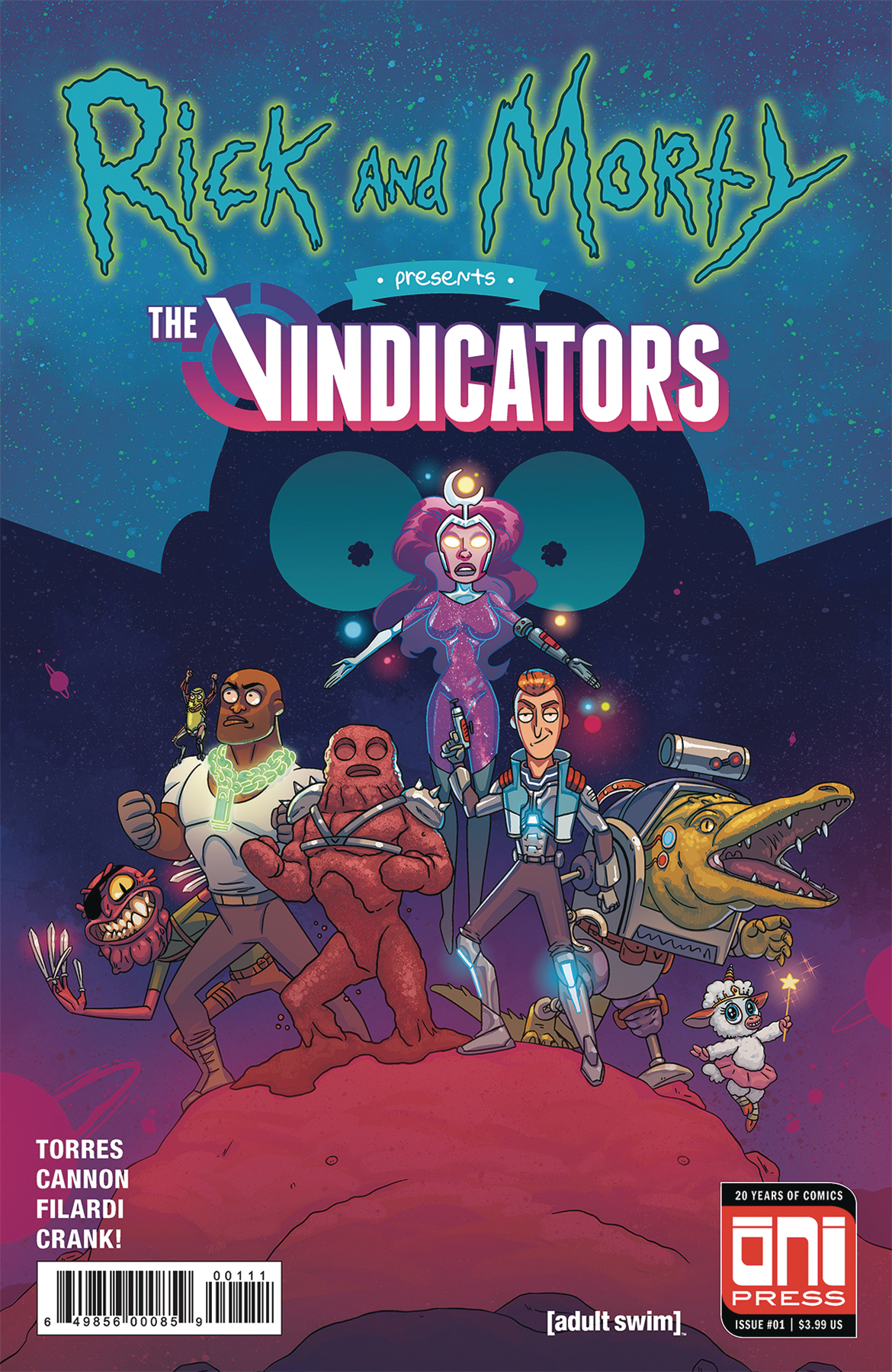Review: Rick and Morty Presents: The Vindicators #1
By Kelly Gaines
Fans of the animated hit Rick and Morty know the gig- a hilarious, grim, and consistent deconstruction of genre after genre, trope after trope, and narrative after narrative. Rick and Morty is part comedy TV program, and part societal framing device fashioned in the style of Deconstructive criticism- the literary critique style so complex that my Sophomore Seminar chose to skip that chapter of critical theory. Rick and Morty creators Justin Roiland and Dan Harmon have put that decision to shame. The average twenty-something schmuck can understand narrative deconstruction- you just have to make it hysterically funny. The concept is this: Imagine what it means to deconstruct a house. Yes, it is technically destroying the house, but through deconstruction, you can look more closely at each of the house’s components. These separate components, when studied, can hold a new and unintended meaning. Tampering with the little pieces is the fuel of deconstruction; and indicates that when you try to put the house back together, it cannot stand. This is one the main themes of Rick and Morty, and what Rick and Morty Presents: The Vindicators tries to achieve.
I don’t use the word “tries” loosely. Rick and Morty Presents: The Vindicators is a less interesting replay of the same ideas voiced in Rick and Morty Season 3 episode 4. The episode was a pointed deconstruction of the superhero genre, specifically focusing on the pop culture obsession with blockbuster superhero team-up films. Rick, who has admittedly “officially had too much to drink last night,” puts Morty’s favorite superhero team The Vindicators through a Saw-like game to prove once and for all that the heroes are ordinary, overplayed, and lacking in any real moral fiber. This comic does the exact same thing. Rick cracks jokes about the constant resurrections of killed off heroes, the oversimplified backstories popularized by early comics, and the recent media obsession with anti-heroes like Deadpool. While he and Morty follow the Vindicators on a quest to recruit more teammates, Rick undercut the importance of the mission by pointing out the existing heroes flaws at every turn. He begins to suggest some anti-hero recruits of his own via Pickle Rick and Scary Terry. The inclusion of these fan favorites does nothing to help the plot. This version of Scary Terry says “beyotch” instead of “bitch,” and the appearance of Noob Noob (which was set up to be a plot twist?) is the world ending villain known as Boon. Get it? Boon… Noob… who would have guessed?
Rick and Morty comics are typically very funny, but this spin-off relies completely on the humor created by the show and does nothing original to make the comic stand out. I finished my reading with the feeling that I could have just watched the original episode instead. Mock superhero stories and parodies are becoming as popular as the blockbuster hits themselves, and it takes much more ingenuity to make a story like this interesting. Essentially, if you aren’t adding more to the conversation- why bother saying it? If you’re into comics deconstructing comics, I’d recommend reading something like The Pro or Bomb Queen and getting your Rick and Morty fix from the main title. Rick and Morty Presents: The Vindicators is an unfortunate miss.
Score: 2/5
Rick and Morty Presents: The Vindicators #1
Oni Press


